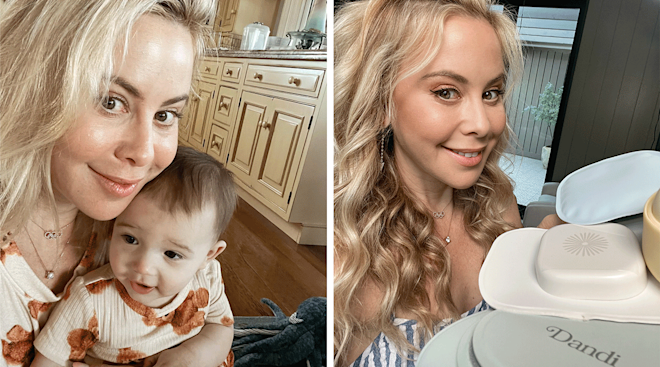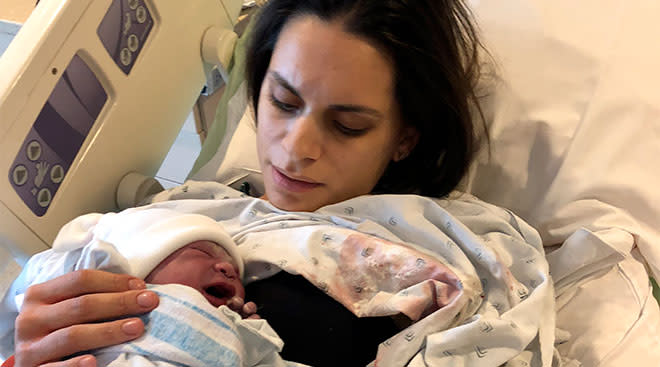How to Talk to Your Partner About Infertility
If you’re experiencing infertility, you know it’s a lonely kind of pain. It can be hard to talk about your struggle with friends and family, and sometimes even your partner. But you each need the support of the other as you walk this path together. So how can you open up communication about infertility? Liz Colizza, MAC, LPC, NCC, a licensed marriage therapist and head of therapy at Lasting, the nation’s leading relationship counseling app, offers her advice on how to approach healthy conversations with your partner during this difficult time.
It’s always a good idea to talk about family planning before you enter a marriage of long-term commitment, but until you actually try to get pregnant, you never know how easy or difficult your fertility journey will be. Just as your preferences and personalities grow and change over time, so will your feelings about infertility and family planning in general. “This should be an ongoing conversation in a marriage or committed relationship,” Colizza says. One of you may feel ready for certain treatments while the other may not. One of you might want to keep pushing forward and the other might want to take a break. “Both partners need to be open to the other changing their mind,” Colizza says. “To keep communication open, check in with each other frequently and freely offer your thoughts and feelings in a respectful way.”
Authentic, vulnerable conversation is the goal, and that starts with intentional questions. Maybe they’re questions about your family planning in general, or perhaps they have to do with a certain treatment plan or procedure. If you’re having trouble voicing your feelings to each other, write down some open-ended questions (start with “how,” “what” or “when”), and take some time to process your answers before sharing. It may take longer than you think, but being intentional about your response will go a long way to creating a healthy, vulnerable dialogue. “When you’re ready to share, use gentle, soft startups for conversation, and use ‘I’ statements to share your own perspective,” Colizza advises. “Communicate to your partner that you’re in this together and that you’ll navigate it as a team going forward.”
You might feel the need to sugar-coat your emotions or pretend things are better than they are for the sake of protecting your partner or yourself, but the best way to cultivate a safe space for healthy conversation is to be vulnerable. Don’t minimize or ignore your negative feelings toward infertility. Allow yourself and your partner the space to share the heartache. The Lasting app offers a helpful formula for vulnerable conversation: “I feel X when Y happens. I need Z.” Don’t be afraid to share what you need right now from your partner.
“To have healthy conversations around infertility, both partners need to make room for the other person’s feelings, thoughts and expectations, “Colizza adds. “Even if you don’t agree or share the same feelings, you need to still share your perspective.” It may be painful in the moment, but over time you’ll both benefit from honest sharing.
If you’re navigating infertility right now, lean on your support system for help and encouragement, and use these tips to rely on your partner. Remember, you’re processing this pain in different ways, and there’s no right or wrong way to feel about it all. Invite your partner into your own journey and make space for them to process theirs as well.
For more tools and advice on how to keep your relationship strong through hard times, download Lasting.
Published August 2019
Please note: The Bump and the materials and information it contains are not intended to, and do not constitute, medical or other health advice or diagnosis and should not be used as such. You should always consult with a qualified physician or health professional about your specific circumstances.
Plus, more from The Bump:
Navigate forward to interact with the calendar and select a date. Press the question mark key to get the keyboard shortcuts for changing dates.


















































